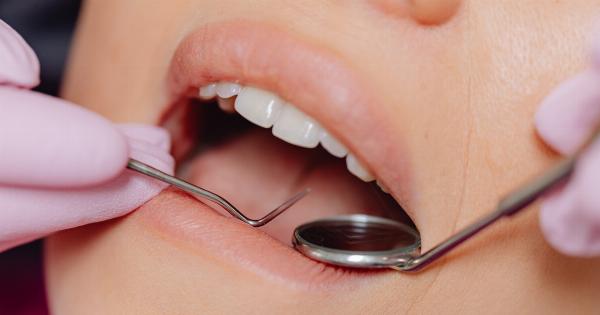Conception, the process of becoming pregnant, is influenced by various factors in women. While many women can conceive easily, there are certain conditions that can affect their ability to conceive.
These conditions can range from hormonal imbalances to structural abnormalities, and it is important for women to be aware of them. In this article, we will explore some of the common conditions that can impact conception in women.
1. Polycystic Ovary Syndrome (PCOS)
PCOS is a hormonal disorder that affects women of reproductive age.
It occurs when the ovaries produce an excess amount of androgens (male hormones), leading to various symptoms such as irregular periods, infertility, and the formation of small cysts on the ovaries. Women with PCOS often have difficulties ovulating regularly, which makes it harder for them to conceive.
2. Endometriosis
Endometriosis is a condition in which the tissue that normally lines the uterus grows outside the uterus, such as on the ovaries, fallopian tubes, or pelvic lining.
This condition can cause inflammation, scarring, and the formation of adhesions, making it difficult for the egg to travel down the fallopian tube and implant in the uterus. Endometriosis can lead to infertility and increased risk of miscarriage.
3. Uterine Fibroids
Uterine fibroids are non-cancerous growths that develop in or on the uterus. These growths can vary in size and number and can interfere with the implantation of a fertilized egg.
Depending on their location, size, and number, fibroids can affect fertility by blocking the fallopian tubes, disrupting the shape of the uterus, or causing hormonal imbalances.
4. Ovulation Disorders
Ovulation disorders can occur due to various factors such as hormonal imbalances, polycystic ovary syndrome, obesity, excessive exercise, and thyroid or pituitary gland problems.
These disorders can disrupt the release of mature eggs from the ovaries, making it difficult for women to conceive naturally. Tracking ovulation and seeking medical intervention can help overcome ovulation-related infertility issues.
5. Blocked Fallopian Tubes
Blocked fallopian tubes can occur as a result of infections, pelvic inflammatory disease, endometriosis, or scar tissue from previous surgeries.
When the fallopian tubes are blocked, it becomes challenging for the sperm to reach the egg or for the fertilized egg to travel to the uterus. This can significantly impair fertility and increase the risk of ectopic pregnancies.
6. Thyroid Disorders
The thyroid plays a vital role in fertility and reproductive health. Both hypothyroidism (underactive thyroid) and hyperthyroidism (overactive thyroid) can affect the menstrual cycle and ovulation, making it difficult for women to conceive.
It is crucial for women with thyroid disorders to have their thyroid levels properly managed before attempting to conceive.
7. Autoimmune Disorders
Autoimmune disorders, such as systemic lupus erythematosus (SLE) or antiphospholipid syndrome (APS), can affect fertility by causing inflammation and influencing the implantation process.
These conditions can increase the risk of miscarriages or complications during pregnancy. It is essential for women with autoimmune disorders to work closely with their healthcare providers and specialists when planning for conception.
8. Pelvic Inflammatory Disease (PID)
Pelvic inflammatory disease is an infection of the female reproductive organs, usually caused by sexually transmitted bacteria. PID can cause scarring and damage to the fallopian tubes, uterus, and ovaries, leading to fertility problems.
Early diagnosis and prompt treatment of PID are crucial to minimize the risk of complications and preserve reproductive health.
9. Premature Ovarian Insufficiency (POI)
Premature ovarian insufficiency refers to a condition where the ovaries stop functioning normally before the age of 40. Women with POI may have irregular or absent periods, difficulty conceiving, and early menopausal symptoms.
It is important to seek medical help for diagnosis and explore options such as egg freezing or assisted reproductive technologies if fertility preservation is desired.
10. Age-related Factors
As women age, their fertility naturally declines. After the age of 35, the quantity and quality of eggs decrease, making it more challenging to conceive.
Advanced maternal age is associated with an increased risk of pregnancy complications, such as gestational diabetes and chromosomal abnormalities in the baby. It is important for women to be aware of these age-related factors and seek appropriate medical guidance when planning for pregnancy.





























